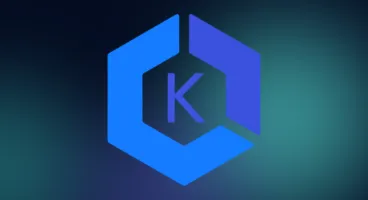Understanding AWS Lambda Cold Starts and Their Optimization Strategies

This post explores the challenges and solutions related to AWS Lambda cold starts, which can hinder application performance in latency-sensitive environments. Traditional methods like provisioned concurrency and warmup plugins are discussed, highlighting their limitations such as increased costs and manual configuration. The post then introduces Sedai's innovative approach to autonomous optimization, which automatically adjusts Lambda functions for optimal performance and cost-efficiency. By eliminating the need for manual intervention, Sedai ensures continuous optimization, reducing cold start latency and ensuring scalability without escalating costs. With Sedai’s autonomous concurrency, teams can stay ahead of performance challenges while maintaining streamlined and cost-effective cloud infrastructure.
Top Strategies to Optimize Azure SQL Costs in 2025

In today's competitive business landscape, optimizing Azure SQL costs is not just a nice-to-have; it's a necessity. By adopting best practices and leveraging the right tools and techniques, organizations can strike the perfect balance between performance and cost-efficiency, enabling them to stay ahead of the curve in 2025 and beyond.
Strategies for Google Cloud Storage Optimization in 2025

Optimizing Google Cloud Storage involves a multi-faceted approach that emphasizes both cost management and performance enhancement. Begin by evaluating the storage classes available within Google Cloud. By understanding and leveraging the specific characteristics of each class, such as data retrieval speed and storage cost, teams can align their storage usage with operational needs. This strategic alignment ensures that data is both accessible and cost-efficient, tailored to the organization's usage patterns.
Amazon EMR Cost Optimization: Key Strategies for 2025

Optimizing Amazon EMR expenses becomes increasingly critical for organizations looking to maintain budget efficiency while ensuring high performance and scalability in their data processing workflows. By implementing effective cost optimization strategies, businesses can significantly reduce their EMR costs without compromising on workload efficiency.Understanding the key levers for cost savings in Amazon EMR is essential for making informed decisions and achieving long-term financial benefits. These strategies involve a combination of resource management techniques, data storage optimizations, and performance tuning practices that can help organizations strike the right balance between cost and performance.
Effective Strategies for OpenAI Cost Management in 2025

Optimizing OpenAI costs will be crucial for businesses seeking to leverage the power of AI while maintaining financial efficiency. Implementing cost optimization strategies not only helps manage expenses but also ensures that resources are allocated effectively, maximizing the value derived from OpenAI's services.
How to Optimize Amazon DynamoDB Costs in 2025

We'll explore the key strategies and techniques for optimizing Amazon DynamoDB costs in 2025, helping you navigate the complexities of cloud cost management and make informed decisions that drive business value. Optimizing DynamoDB costs is not a one-time task; rather, it requires continuous monitoring, analysis, and adaptation to ensure that resources are being utilized efficiently. By understanding the intricacies of DynamoDB pricing models and implementing best practices, organizations can significantly reduce their database expenses without compromising on performance or reliability.
Cost Optimization Strategies for Amazon RDS in 2025
![Cost Optimization Strategies for Amazon RDS in 2025]()
Cost optimization for Amazon RDS involves a combination of monitoring, right-sizing, and leveraging AWS tools to reduce costs while maintaining optimal performance. By adopting best practices and implementing effective cost management techniques, organizations can significantly lower their RDS expenses without compromising on reliability or performance.In this article, we'll explore various strategies and tools that can help you optimize your Amazon RDS costs. From resource tagging and utilization monitoring to instance right-sizing and automated scheduling, we'll cover the key areas where you can make impactful changes to reduce your RDS spending.
Top Strategies for Google Dataflow Cost Optimization in 2025

Google Dataflow is a powerful tool for processing large-scale data, but its costs can quickly add up without proper management. Optimizing Google Dataflow costs is crucial for organizations looking to maximize the value of their data processing pipelines while minimizing expenses.Cost optimization involves a combination of strategies, techniques, and best practices that help users effectively manage and reduce the costs associated with running Dataflow jobs. By understanding the factors that influence Dataflow pricing and implementing targeted optimizations, organizations can significantly improve their cost efficiency and overall return on investment.
AWS EKS Auto Mode: Early Community Feedback

Early community perspectives on AWS EKS Auto Mode from Reddit, Medium, and LinkedIn, summarizing key points about cloud cost, productivity, security, and high availability benefits. Overview of compatibility and customization trade-offs to help evaluate if EKS Auto Mode suits your Kubernetes needs.
Optimizing Autoscaling in Azure Kubernetes Service

This blog discusses optimizing autoscaling in Azure Kubernetes Service (AKS) to enhance cost-effectiveness and performance. It emphasizes the Cluster Autoscaler’s role in managing node numbers and outlines best practices, including implementing availability zones, assigning CPU/memory requests, and tailoring configurations for mixed workloads. The blog also covers creating performance-focused and cost-focused autoscaler profiles, addressing common challenges like scale-up and scale-down failures, and utilizing monitoring tools like resource logs and custom metrics. By adopting these strategies, organizations can significantly improve their cloud infrastructure's efficiency and scalability.
Choosing Correct Instance Types for Rightsizing in GCP VMs

This blog explores the importance of selecting the correct instance types for rightsizing in Google Cloud Platform (GCP) Virtual Machines (VMs), emphasizing how businesses can optimize costs and performance. It covers various GCP instance categories, including general-purpose, compute-optimized, memory-optimized, and accelerator-optimized instances, and explains the key factors to consider when rightsizing. Additionally, the blog highlights the role of GCP’s built-in tools like GCE Rightsizing Reports and the benefits of using Sedai’s AI-driven platform to automate and optimize resource allocation in real-time, ensuring efficient and cost-effective cloud infrastructure management.
Understanding Azure Kubernetes Service (AKS) Pricing & Costs

Managing costs effectively in Azure Kubernetes Service (AKS) is crucial for optimizing performance and ensuring scalability without overspending. This blog delves into the key components of AKS pricing, including control plane, node pools, data transfer, and storage costs. It also explores actionable strategies for cost optimization, such as leveraging auto-scaling, Spot VMs, rightsizing resources, and utilizing cost management tags. You’ll also learn about various approaches to resource optimization—manual, automated, and autonomous—to help businesses achieve efficiency while keeping costs under control.
Understanding AWS EKS Kubernetes Pricing and Costs

This blog provides an in-depth look at the key components of AWS EKS pricing, including the control plane, worker nodes, data transfer, and storage costs. It breaks down how each element contributes to overall expenses and explores cost-effective strategies tailored for EKS environments. You’ll find insights on using various pricing models, including EC2, Fargate, and Outposts, and practical tips on leveraging Reserved and Spot Instances for savings. Additionally, the article discusses how businesses can adopt manual, automated, and autonomous approaches to cost management, with a special focus on optimizing resource allocation, auto-scaling, and workload management. Learn how intelligent, real-time solutions can help you streamline EKS operations and reduce costs without sacrificing performance.
















